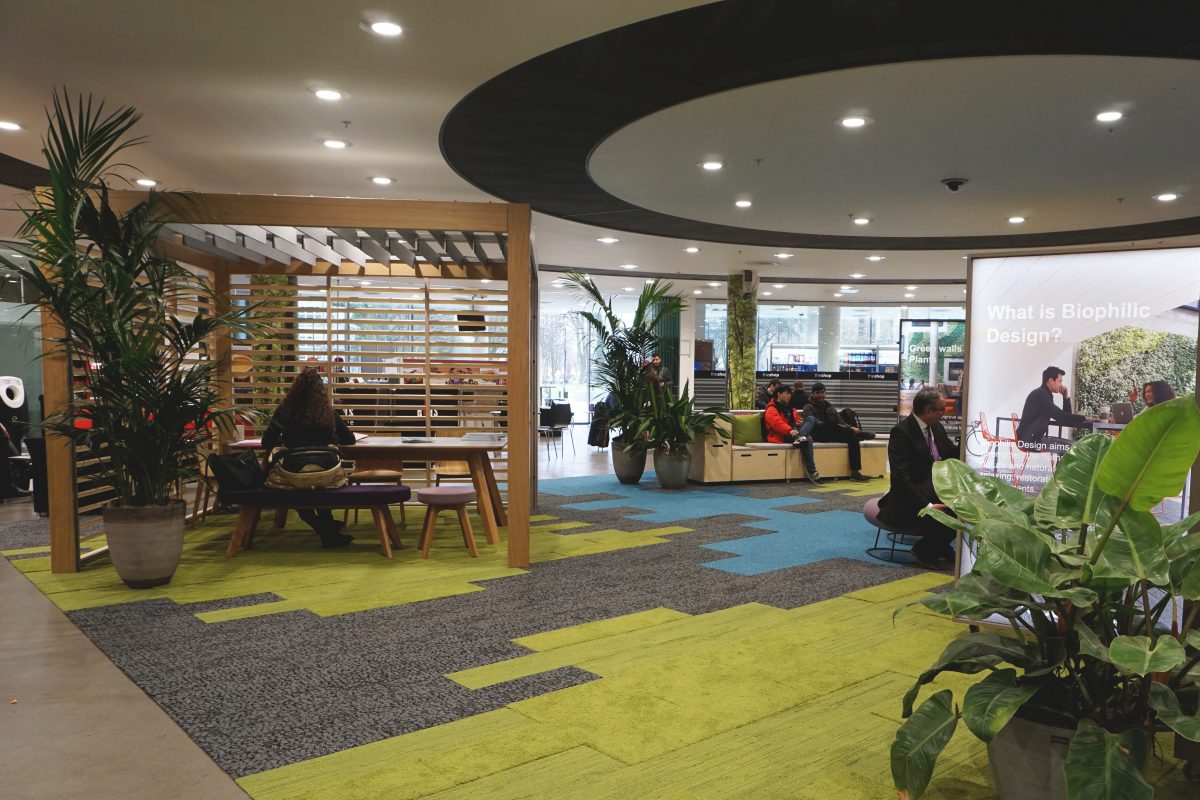What impact does our workplace have on us as occupants? Health and wellbeing of staff is a hot topic for employers, with a growing understanding of the impact that our office environment has on it and on our performance in the workplace.
We spend 90% of our lives in buildings, including much of our working lives, so our immediate surroundings inevitably contribute to how we feel and to our health. Whilst some of the impacts of buildings on occupants, such as indoor air quality, have been studied in depth, the concept of bringing elements of nature into the workplace is relatively new – and it’s an issue being explored in the latest phase of the BRE Biophilic Office project.

Biophilic design acknowledges that we are genetically connected to nature and that a human- centred design approach can improve many of the spaces that we live and work in, with numerous benefits to our health and wellbeing and effectiveness. The scientific evidence for the positive influence of biophilic design on the health and wellbeing of building occupants is substantial and growing.
A group of BRE staff have been recruited to participate in an ongoing monitoring programme, to help gain a better understanding of the impact of our indoor environment on health, wellbeing and, ultimately, work performance. These staff are the current occupants of the 1980s office building on the BRE site at Watford that will be the subject of the nature-inspired refurbishment project.
Kirsten Lord, Director of HR at BRE says “This research offers us a great opportunity to contribute to the understanding of the impact of the office environment on the health and wellbeing of our colleagues. The link between people’s wellbeing and our wider business culture is one we are very keen to understand and benefit from.”
Technology more commonly used in the gym, such as fitness trackers, is being harnessed to provide anonymised data on occupants. Combined with other monitoring data, this will give insights into the health and wellbeing of staff at points in time, and provide a better understanding of the key impacts of a range of office design features and interventions.
Flavie Lowres, deputy project manager at BRE, says “The monitoring programme will enable us to develop an evidence base for a range of interventions which would be possible in the workplace and that would really make a difference to occupants. It will also test the innovative methodology developed by the BRE team that will be used to develop larger-scale studies in the future.
As businesses increase their focus on health and wellbeing, this research offers an opportunity for them to explore what they can do themselves to improve their workspaces to benefit, not only their employees’ well-being, but also wider business outcomes.
More on The Biophilic Office can be found at www.bregroup.com/biophilic.

